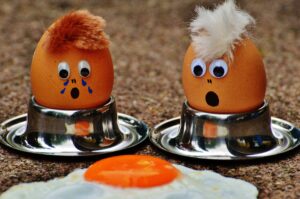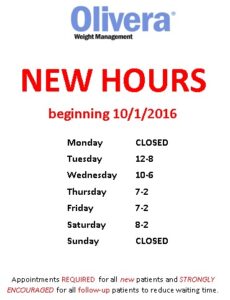Have you ever heard these comments about protein and weight loss and wondered if they’re true?
1 – If you don’t eat enough protein, you won’t lose weight.
2 – Carbs turn to fat so eat more protein and less carbs.
3 – You can’t really eat too much protein. More is better.
4 – Half of your plate should be lean protein.
5 – You need to eat a lot of protein to gain muscle.
Protein Myths Debunked by Basic Physiology and Science!
If you don’t eat enough protein, you won’t lose weight.
- Inadequate protein intake will not prevent you from losing weight.
- However, not getting enough protein may result in losing more muscle mass. When we lose weight, we all want to lose fat, not muscle. Losing muscle mass can also result in a lower metabolic rate, meaning you get to eat less calories per day to maintain the same weight.
- Take Home Message: Getting enough protein to support the maintenance of muscle mass during weight loss is important, but not eating enough protein alone will not make it impossible to lose weight.
Carbs turn to fat so eat more protein and less carbs.
- Your body stores any excess calories as fat, regardless of the source. If you eat too much protein, carbs or fat your body will convert them to adipose tissue (body fat).
- Additionally, your body will function optimally if it is fueled by all three macronutrients, carbohydrates included.
You can’t really eat too much protein.
- Actually, you can. More than 2 grams of protein per kilogram of body weight (or about 0.9 grams per pound of body weight) provides no benefit in the average person, and may even have negative effects.
- Your body is unable to store excess amino acids for later use. So, again, anything in excess of your overall daily calorie needs will be stored as fat.
- Studies suggest that excessive protein intake may contribute to osteoporosis, kidney stones, and possibly also dehydration. Additionally, if you have any undiagnosed kidney issues, excessive protein intake can put additional stress on the kidneys and is not recommended.
Half of your plate should be lean protein.
- According to leading health organizations (Academy of Nutrition and Dietetics, USDA, American Heart Association, American Diabetes Association) about 1/4 of your plate should consist of a lean protein, not half.
You need to eat a lot of protein to gain muscle.
- Correction – you need to eat an adequate amount of protein to gain muscle mass.
- Strategic timing of protein intake is beneficial to promote muscle development.
- If you have specific muscle gaining goals, consider a Nutrition Consultation for expert recommendations on optimal protein intake to help you reach your goals faster!
For more facts, support and resources on losing weight and eating according to your goals, consider visiting us at Olivera Weight Loss today. We offer an FDA approved appetite suppressant, Phentermine, proven to help people lose weight. We also offer body composition analysis and lipotropic injections.
Don’t miss out on our upcoming events! Check out our Facebook page or Eventbrite for more information. Please visit our website for more detailed information and for pricing or call us today at 773-327-6624.
Written by Cassandra Towns, RDN, LDN, CD, CLC
Resources:
https://www.diabetes.org/food-and-fitness/food/planning-meals/create-your-plate/
https://www.heart.org/HEARTORG/HealthyLiving/HealthyEating/Nutrition/Suggested-Servings-from-Each-Food-Group_UCM_318186_Article.jsp
https://health.gov/dietaryguidelines/2015/guidelines/
https://www.kidney.org/
www.eatright.org







